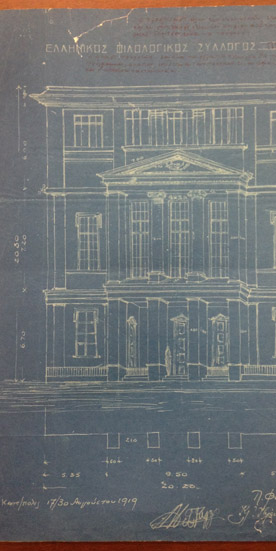
Contested Spaces in Istanbul before and after the Foundation of the Nation-State
The transition from the multi-ethnic, multi-religious Ottoman Empire into the homogenized nation-state context through the establishment of the young Turkish Republic eventually resulted in the change of the urban texture of Istanbul. Losing its position as the capital city, Istanbul also witnessed a drastic change in its demographical plurality reflected onto its urban environment in different ways.
A significant change was in the transformation of the visibility of non-Muslims in the urban context. The Ottoman Greeks, who were the largest non-Muslim community in the city, were among the most active communities in financial, social, and cultural activities. However, particularly throughout the twentieth century, the urban traces of the Greeks of Istanbul faded away. Since the city was excluded from the widely known population exchange between Turkey and Greece, the loss of the Greek population of Istanbul is mainly inquired along the trajectories of the 1955 pogrom (the Septemvriana) or the 1964 expulsion of Greeks. However, it should be noted that the Greek population in Istanbul also was under the direct influence of the conditions that brought the population exchange: The unrest created by the conditions of Greek occupation of Anatolia and thus the search for a homogenous population on both sides of the Aegean. Particularly the intellectual environment of Istanbul, the artistic and literary productions, and the architecture of the city, in which the Greeks played a significant role, undergone considerable change. Moreover, the drop-down in the population of the Greeks of Istanbul from both the cultural life in Istanbul and its urban space was also reflected in its physical environment. Accordingly, in this project, I aim to trace the negative transformation of the visibility of the Greeks from the urban context in its tangible and intangible aspects around the early years of the Republic.
Researcher: Firuzan Melike Sümertaş in cooperation with Özge Sezer in the project Internal Colonization as a Way of Modernization? Contested Spaces in Rural Turkey before and after the Foundation of the Nation-State
